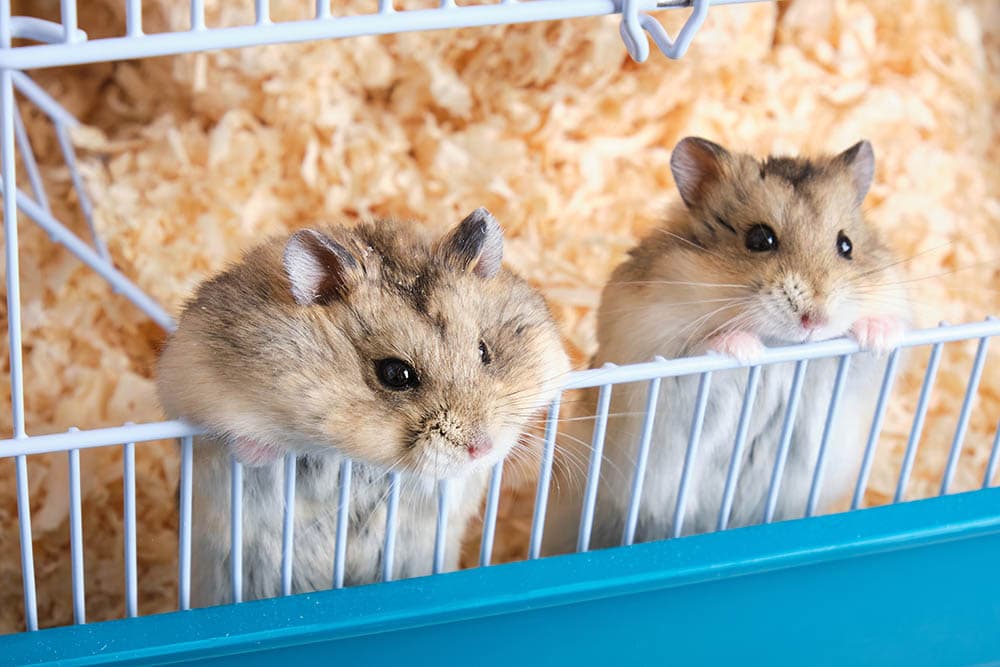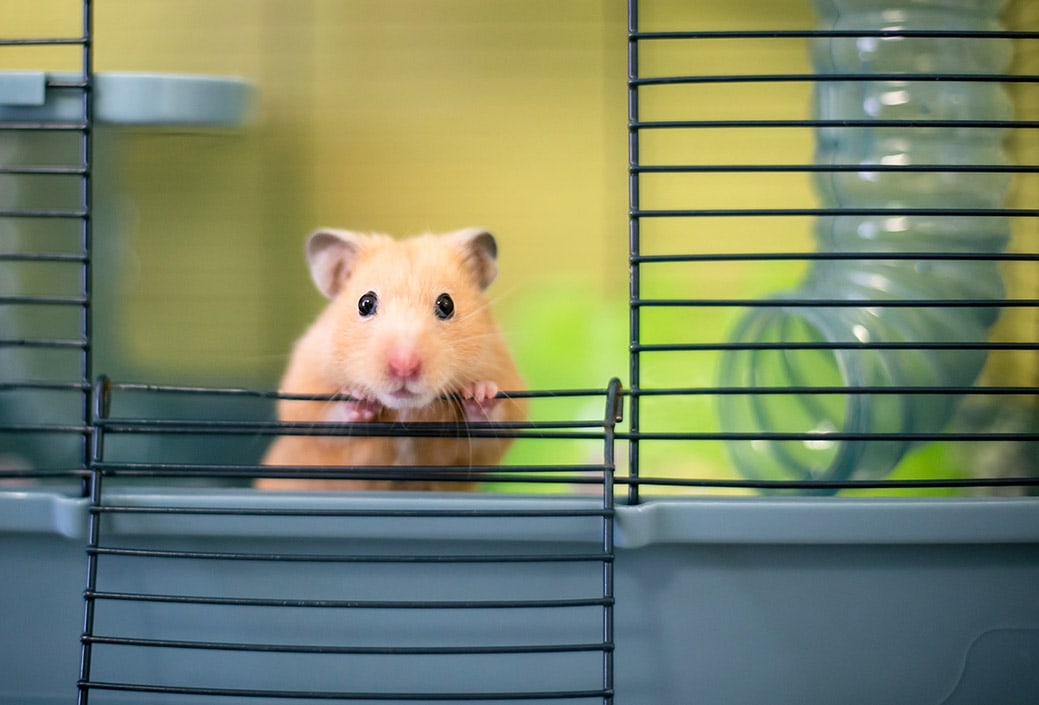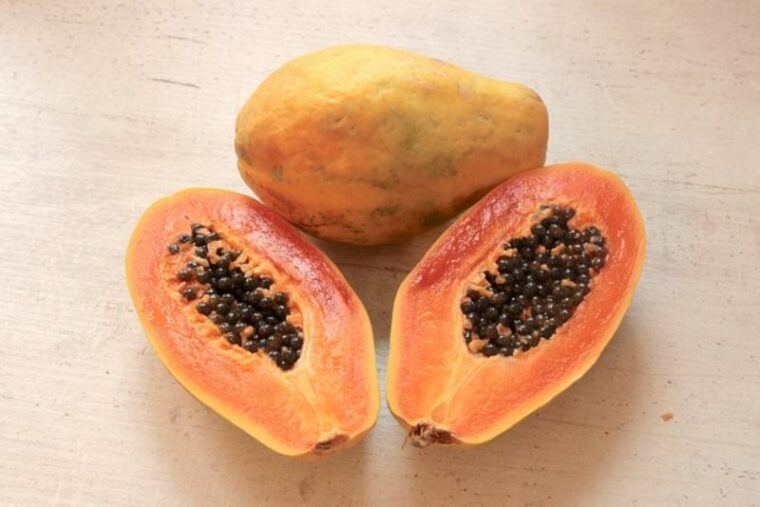
Feeding your hamster various fresh vegetables and fruits is a great way to keep them mentally enriched while meeting their nutritional needs, but not all foods are appropriate for your pet. For those trying to make a list of which veggies and fruits they can safely feed their pet, feel free to add papaya.
Papaya is an excellent option for your hamster, but like any fruit, it should only be fed in moderation. In this article, we will discuss the benefits and risks of papaya so you can decide if this fruit is a good addition to your pet’s meals.
Papaya Overview
Papayas are native to Mexico, and are a tender, fleshy fruit. Although it originated in Mexico, it also grows in the Caribbean and Florida. The fruit is packed with vitamin C; in fact, a medium-sized papaya contains over 224% of a human’s recommended daily intake. Although hamsters are able to synthesize their own Vitamin C, this is still a pretty fascinating factoid! Papaya is also a great source of vitamin A, vitamin E, calcium, potassium, B vitamins, alpha and beta-carotene, lutein, zeaxanthin, vitamin K, and lycopene.
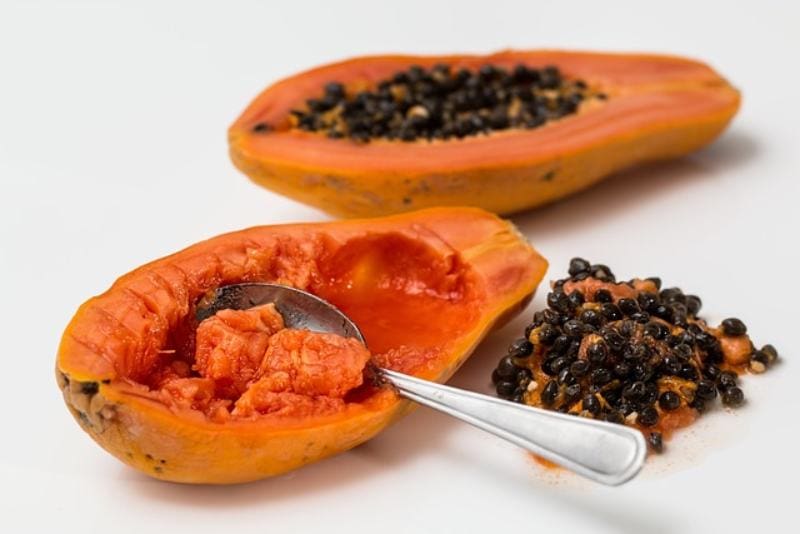
Benefits of Papaya
Papayas are rich in vitamins and minerals. Another great benefit is that they are an excellent source of antioxidants. These antioxidants support your pet’s health by bolstering their immune system. They help remove toxins from your hamster’s body and help your pet to fight off diseases.
The vitamin C content in a papaya can improve the health of your hamster’s skin and coat, and the fiber can support their digestive system. Overall, serving a small portion of papaya occasionally can be a great benefit to your hamster’s health.
Risks of Papaya
All fruits should be fed in careful moderation due to their sugar content, and papaya is no exception. Although not as high in sugar as some fruits, it is still more than a hamster should be eating regularly. Too much sugar in their diet could put your hamster at risk of developing diabetes, obesity, or other diet-related health conditions.
Additionally, you should only feed the soft flesh of the fruit to your pet. The peel and seeds should be removed, as they can become choking hazards. Likewise, cut the flesh into small, bite-sized pieces so your hamster doesn’t choke on them.
Can Hamsters Eat Dried Papaya?
While dried papaya is not toxic for your hamster, it is not recommended. Dried fruits typically contain a much higher sugar concentration than fresh fruits, so feeding them to your pet can cause them to overload on sugar quickly. Therefore, it is best to stick to fresh fruits.
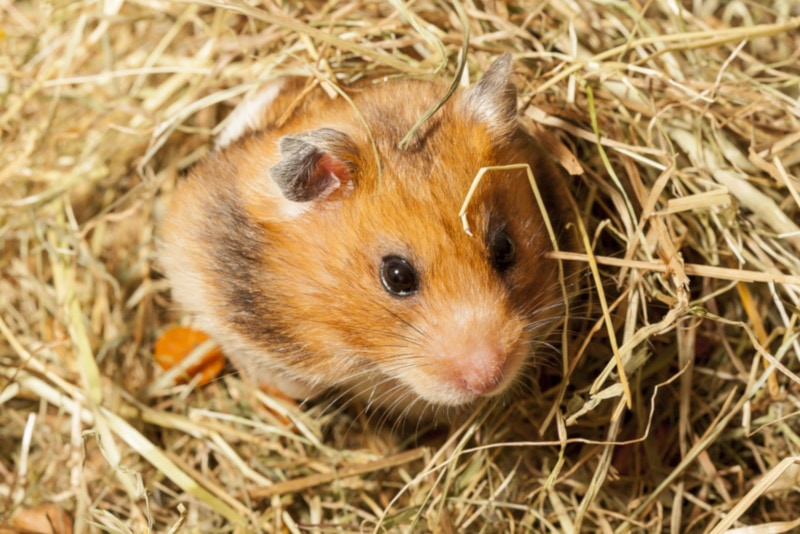
Safe Fruits to Feed to Your Hamster
While papaya is safe for your hamster to eat, it should not be the only fruit they are given. Rotating through a selection of safe fruits is a great way to keep your hamster’s diet varied and balanced.
Safe Vegetables to Feed Your Hamster
Fruits should only make up a small percentage of your pet’s meals. Instead, you should focus on providing vegetables as their fresh snacks. Here is a list of safe vegetables and herbs you can incorporate into your hamster’s diet:
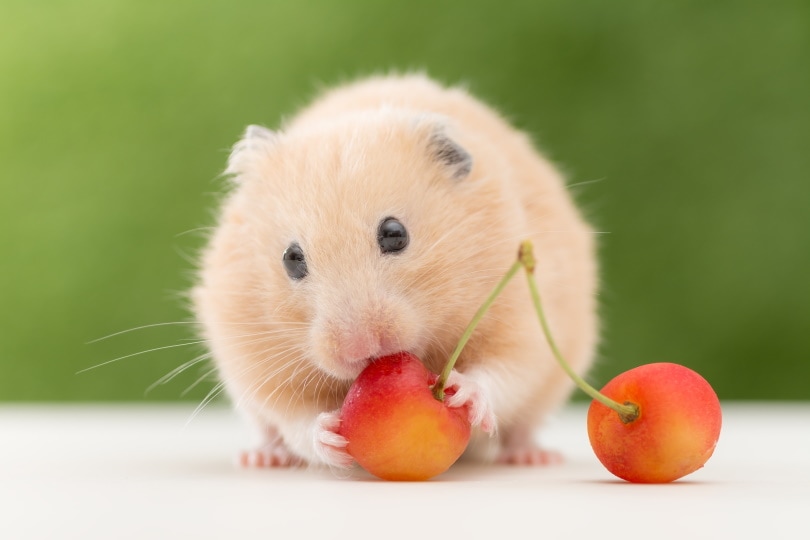
Ensuring Your Hamster Receives a Healthy Diet
Fresh vegetables are a great way to supplement your hamster’s diet, with fruits a healthy treat. However, the majority of your pet’s nutrition should come from a high quality, species-specific hamster pellet food. An ideal pellet diet will contain the following proportions:
Feed your hamster around ⅛–⅓ cup of pellets each day. You can supplement your hamster’s diet with seeds, but seed-only diets should never be used. Hamsters that are fed only seeds often suffer from nutritional deficiencies. Seed diets are also high in fat and sugar, which can lead to health complications further down the road.
While veggies and fruits are a great supplement for your hamster’s meals, the bulk of their diet should be pellets. Furthermore, your hamster should have constant access to fresh, clean water.
A healthy diet is the first step to ensuring your hamster’s health and quality of life. For this reason, it is vital to reach out to your vet with any questions and collaborate on a diet plan for your hamster.
Final Thoughts
Papayas are a safe fruit for your hamster, but make sure to feed it in moderation. The high sugar content in papaya can make it an unhealthy fruit in excess, which is why it is so important to provide a varied diet for your pet. Do not delay reaching out to your vet if you have any concerns about your hamster’s diet or overall health. Several fruits can provide significant benefits for your pet, and the key is ensuring that they get a balanced taste of each.
Featured Image Credit: 3centista, Pixabay


